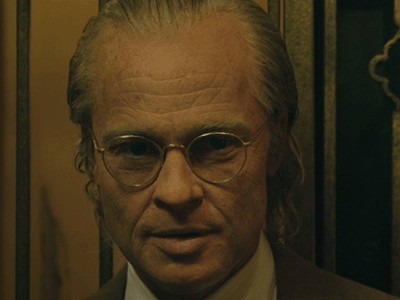
Being a comedian in America sometimes looks like the hardest job in the world - yes, even harder than working in one of those African diamond mines where they kill you for asking for oxygen. That's because Americans seem to want their entertainment to have sappy, moralising, false-emotion-packed "heart", which is pretty much the exact opposite of funny. And even though American comedy often seems to have shaken off this burden of having "heart", you don't have to wait too long before it starts sneaking back. So, after a few years of generally heart-free - and therefore, very funny - comedies, it's a little worrying to check out something like Role Models and discover that there's just a little bit more "heart" here than one might have expected. Put another way: the premise of this movie is that a couple of energy drink salesmen - the downbeat Danny (Paul Rudd) and the party guy Wheeler (Seann William Scott) - get hopped up on their own product, commit one too many crimes, and only escape jail because Danny's lawyer ex-girlfriend (Elizabeth Banks) cuts them a deal to help out at a big brother-style charity for kids. This set-up, which sounds like the kind of thing a current movie comedy would make fun of, is played pretty much straight: no wacky mix-ups, no crazy slip-ups, they break the law and this is their for-real sentence. Then when the guys pair off with their kids - Danny gets a live-action role-playing nerd played by Superbad's McLovin (Christopher Mintz-Plasse), while Wheeler gets a foul-mouthed, breast-obsessed pre-teen - the hijinks are interspersed with the occasional straight-faced "you gotta take care of kids" and "kids should be free to be who they want to be" scene. Make no mistake, there is plenty of funny stuff going on here, with the kids especially bringing the laughs in serious doses. The live-action role-playing finale is a classic, the running jokes about Kiss and Wings are hilarious, and there is no doubt whatsoever that comedy fans will find this well worth the money. But it's got to be said: this movie contains scenes of gratuitous, occasionally jarring and not really that much fun "heart".
Anthony Morris (this review appeared in Forte #444)




